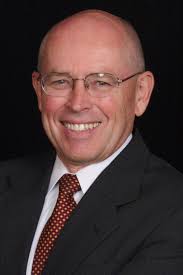Pithy Prayers
Written by Pastor David W. Jones
The most common nickname for Chicago is The Windy City. I used to think it referred to the weather. But Chicago is not even in the top one hundred cities for wind velocity. The nickname actually derives from gasbag politicians. Chicago has a long history of hosting political conventions—infamous for interminable speeches.
Politicians are not the only ones tempted to gasbag. Those of us who pray can likewise be tempted, especially those who pray in public. Someone calls on us to pray, and we panic. In our nervousness, we start spewing out anything that sounds remotely spiritual. We fall into the trap of thinking God will more readily hear a longer or more eloquent prayer.
Christians can have unrealistic expectations about prayer. We hear that Martin Luther prayed three hours every morning. Rather than being inspired, we get depressed. But prayer need not be long in order to be effective. Pithy, Spirit-led prayers can accomplish much.
Look at what Jesus says in the Sermon on the Mount:
And when you pray, do not heap up empty phrases as the Gentiles do, for they think that they will be heard for their many words. Do not be like them, for your Father knows what you need before you ask him (Matthew 6:7-8 ESV).
Ancient pagans thought of the gods as capricious and disinterested in human affairs. So pagans would recite magical incantations, believing that if they could only utter the right words in the right order, then their god would be compelled to act. It was a transactional approach to prayer. The human being gave honor, money and sacrifice, while the god gave peace, prosperity and protection. Quid pro quo.
The God of the Bible is not like that (v.8). He is omniscient (1 John 3:20), possessing exhaustive knowledge of both past and future (Isaiah 46:9-10). He knows everything about us (Hebrews 4:13), even the number of hairs on our head (Matthew 10:30)! And he cares.
The question naturally arises: “If God already knows everything, why pray?” Jesus was not troubled by this, for the next phrase is a command to pray (v.9). Prayer is not manipulation—getting God to do what we want. Prayer shows dependence on God. Prayer acknowledges that we are finite beings, in need of someone bigger than us to provide for us and protect us. Prayer also affords us the opportunity to be involved in God’s work in the world.
Jesus modeled concise prayer. Look at v.9:
Pray then like this: Our Father in heaven, hallowed be your name. Your kingdom come, your will be done, on earth as it is in heaven. Give us this day our daily bread, and forgive us our debts, as we also have forgiven our debtors. And lead us not into temptation, but deliver us from evil (Matthew 6:9-13 ESV).
What is noteworthy about this prayer is its brevity: an address; three God-centered petitions; and three man-centered petitions. Just fifty-seven words in Greek. Nearly half of them (26) are monosyllabic, with another 16 having just two syllables. It takes fifteen seconds to pray aloud. Fifteen seconds! Who does not have fifteen seconds to pray? So Jesus instructs us to get “leaner and meaner” when it comes to prayer.
I got a lesson in this several years ago. Our family needed another car, but we could not afford one at the time. So I uttered a simple prayer, “Lord, please give us a car.” A mere heart sound. A few hours later, a friend drops by our home and declares, “I’m getting a new car. By any chance, could you use the old one?” It was seven years old with less than 100,000 miles. The best part? It was free. My friend had no idea about my prayer or even about our need. God prompted him to think of us. God answered a six-word prayer.
Please do not mishear me. There is nothing wrong with long prayers per se. Jesus himself prayed through the night on at least one occasion (Luke 6:12). But note that he did so privately. My hope is not that you would pray less, but rather more. Having too lofty of a goal can discourage us from doing anything. So let’s keep our prayers short and to-the point, and pray more frequently, especially in this tumultuous election season. When we see something in society that grieves us or makes our blood boil or causes fear, take those concerns directly to the heavenly Father. He is faithful to hear us and to respond.
But resist the temptation to be loquacious. As someone has said, “Never use a gallon of words to express a spoonful of thought.”
David W. Jones is Senior Pastor of the Village Church of Barrington. Before that, he trained pastors in Kenya, served as the Associate Editor of the English Standard Version, and was a member the pastoral staff at Harvest Bible Chapel. David has a passion for mentoring younger pastors, especially church planters.
 We are very excited about our second annual Worldview Conference featuring world-renowned theologian Dr. Wayne Grudem on Saturday, February 20, 2016 in Barrington.
We are very excited about our second annual Worldview Conference featuring world-renowned theologian Dr. Wayne Grudem on Saturday, February 20, 2016 in Barrington.